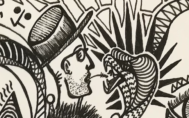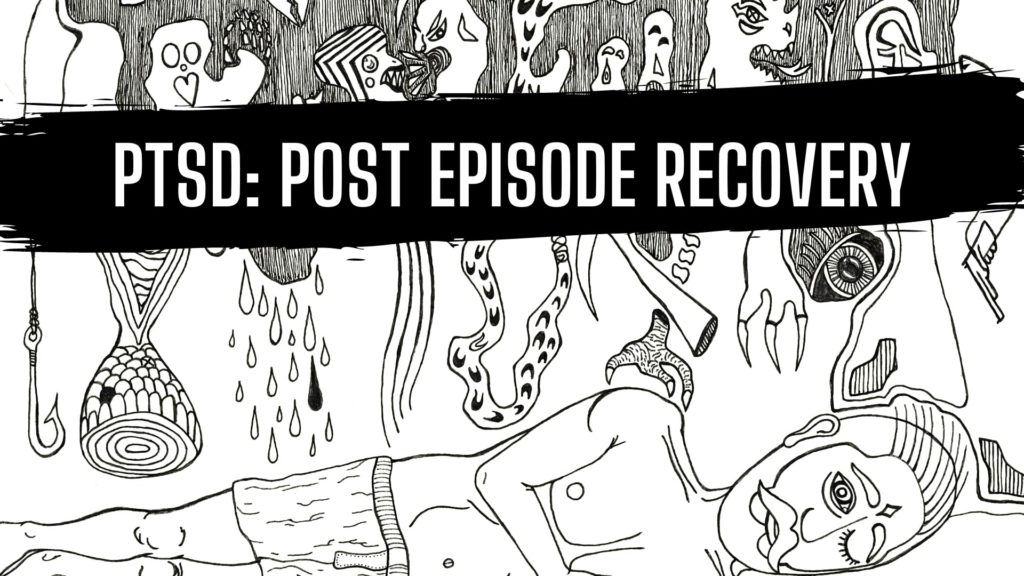Clarity in the Aftermath of a PTSD Episode
When symptoms subside, how do I recover and stabilize?
I succeeded in not jamming myself full of drugs and alcohol yesterday, despite what felt like the most significant onslaught of PTSD symptoms I’ve had in a long time. After running my mind ragged and writing myself tired, I prayed for peace and was blessed with a mostly uninterrupted nine hours of sleep. I’m feeling a lot more centered and clear today, and grateful for that. Good sleep, a shower, a hot meal. These small things go a long way toward stabilization after being neglected for days. Of course this self-care is easily forgotten when my mind is muddied with anxiety and stress during an episode.
The irony of clarity, I am finding, is that it tends to show up after the fire is already under control. My trauma response (staying clean, using my tools, writing, etc.) wouldn’t have changed much in the moment. But, it would’ve been helpful to have been able to remember to surrender yesterday. Today, that’s the first thing on my mind. “Ah yes, of course, the only sensible option… why couldn’t I have remembered that?”
Surrendering vs. Fighting
I remember the times I’ve been in truly heavy, unmanageable surf. The days where the ocean makes it abundantly clear who’s in charge — when the waves carry bone crushing force and energy. Inevitably, I get caught on the wrong side of a crashing wave, and my options diminish to just two: (a) try to fight the unspeakable power of nature, and risk being thrown into the sand with a ferocity that could knock me unconscious or break my bones. Or (b), complete surrender — protect my head as best I can, and let the ocean push and pull my body around like a rag doll until the chaos subsides. And it will, it always does.
Sometimes I land on my feet. Sometimes I slide into shore on my side, with a sand burn or a bump or bruise. Regardless, I make it back to shore. Today I find myself slightly waterlogged, but not much worse for wear. I surrendered by instinct yesterday, though I wish I could have remembered to let go consciously. I would have saved myself the heartache of holding on too tightly and prolonging my own suffering.
The PTSD mind, like the ocean, cannot be tamed. I must surrender to its unpredictable whims, or it becomes my master.
And, much like the ocean’s tide rises and falls, the PTSD mind’s activity, emotional states, and traumatic memories also increase and recede over time. Knowing this, I can work with the tides. I can begin to master the art of surrendering to the inevitable uncertainties that will be brought about in my mind and body as life unfolds. I can shower these thoughts with understanding, hear them out, and let them go. By feeling the feelings as they arise, without judgment or repression, I can express them in ways conducive to their healing.
Like waves crashing upon a rocky shoreline, the water finds the pathways of least resistance that dissipate the tremendous energies of each wave until they settle, in stillness, expended of their force and direction.
Surrendering to my mind and body isn’t giving up, and it isn’t placating the desires of my ego and its addictions. It’s simply sitting with whatever is coming up that is deemed “uncomfortable” and experiencing what it’s trying to tell me. Perhaps it’s an old story that needs to be told. So I write. Perhaps it’s a disturbing memory that feels burned into my mind. So I draw. Perhaps it just wants to be heard. So I find a safe friend to talk with.
Releasing the energies behind PTSD episodes
Letting go of these waves of energy allows me to free up space to live in and enjoy the present moment. Anything less is a disservice to my future self, health, and peace. When I can remember to surrender to the experience, expressing — not repressing — the energy, then I find freedom. The PTSD mind cannot be focused on creativity and also in the fight-freeze-or-flight response at the same time. And I don’t need to be creating a masterpiece to start releasing the chaotic energy of temporarily trapped trauma. I just need to focus long enough to start something: a doodle, phone call, or piece of writing. Anything that will express to the best of my current abilities what is going on in the experience of the current moment.
When I look at experiencing a PTSD episode as an opportunity to express and ultimately grow into a stronger version of myself, the trauma begins to lose its power. Every other episode before this point gave me the strength and skill to succeed against this one. Why wouldn’t I succeed now? The choice is mine. I can fight and extend the discomfort, or I can surrender to what the energy wants to teach me.
Like being trapped in the weight and commotion of a heavy wave, I have two choices: (a) fight against the energy and make things worse, or (b) allow the energy to carry me where I need to be. Back to shore, to more clarity, to more peace.
Be well my friend — be creative — have fun! Why not?

